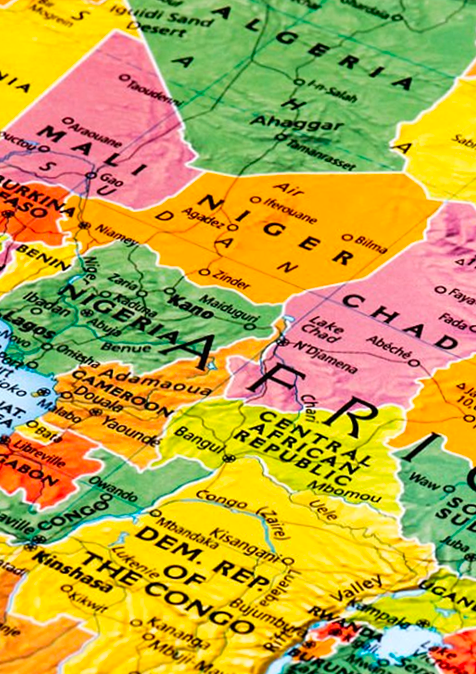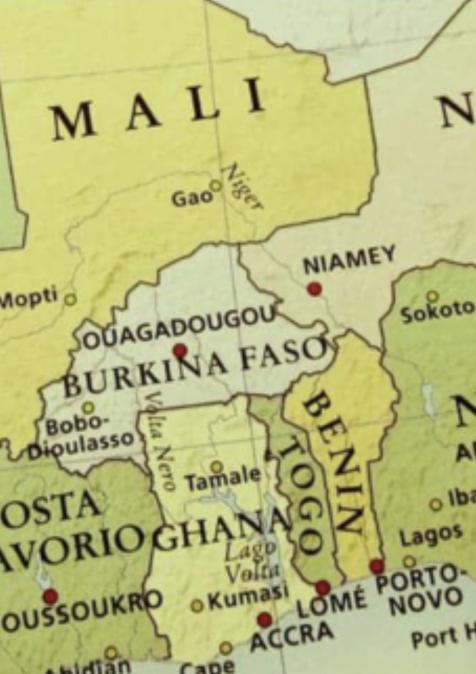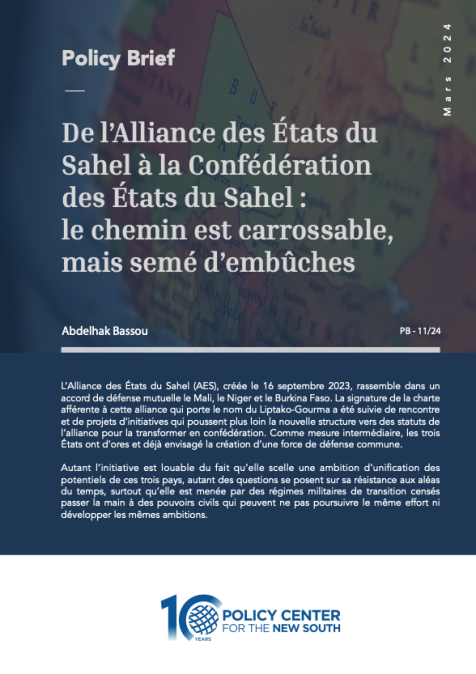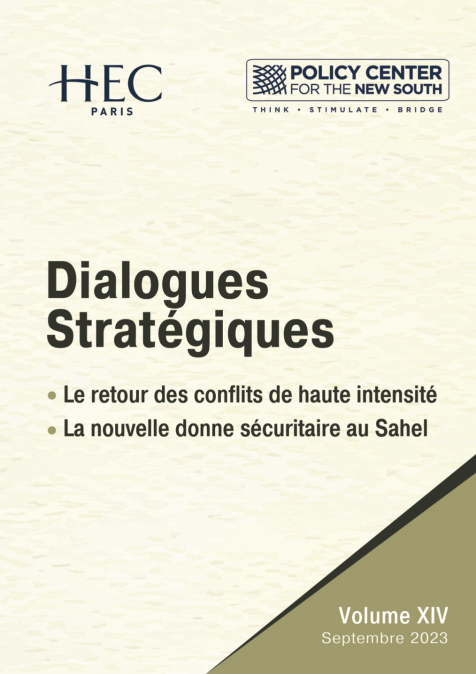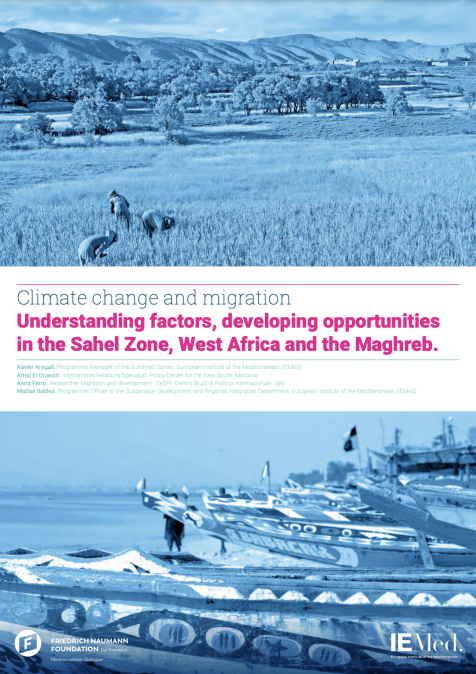Publications /
Opinion
This Paper was originally published on atlanticcouncil.org
On November 6, as Morocco marked the forty-eighth anniversary of the Green March—the mass demonstration that in 1975 paved the way for the country to take control of Western Sahara from the Spanish—the nation’s King Mohammed VI outlined a new regional outreach effort.
He announced the launch of an international initiative to “enable the Sahel countries to have access to the Atlantic Ocean.” Landlocked Mali, Niger, Chad, and Burkina Faso are at the center of the Moroccan plan, which involves making Morocco’s road, port, and rail infrastructure available to them and implementing large-scale development projects.
Even if it is not detailed yet, the Moroccan initiative comes after military regimes came to power by unconstitutional means or through coups d’état, which for three of these states resulted, at various points, in having sanctions imposed on them. For example, Niger was sanctioned by the United States, European Union (EU), and European countries such as France and the Netherlands. Notably, Malian army officers who collaborated with the Wagner Group or were suspected of crimes were sanctioned by the United States. And the Economic Community of West African States (ECOWAS), which had sanctioned Niger, Mali, and Burkina Faso, lifted its sanctions on Niger and Mali in February this year, a month after the three Sahelian countries left the organization and soon after the countries formed the Alliance of Sahel States. Chad has not yet seen sanctions imposed after the undemocratic accession of its president following the death of his father. While the sanctions imposed on the three countries are intended to apply pressure on those who seized power by force or defied the constitution, in the hopes of restoring democratic systems, these sanctions also impact the populations.
The people in these countries are essentially penalized twice: On the one hand, they are led by governments that have revoked the right of the people to choose their leaders. On the other hand, these populations also suffer from the effects of sanctions, which cause them economic hardship, limit their access to essential goods, cut them off from the world, and deprive them of trade opportunities.
That creates a quandary for the democratic world: While sanctions are intended to target unconstitutional governments, it is the ordinary people in these countries who suffer the most from them.
Behind the initiative
Morocco’s efforts to cooperate with the states in the Sahel seem inspired by Morocco’s 2011 Constitution—mainly the preamble.
In this preamble, Morocco commits itself to supporting the Maghreb Union (which it says is a “strategic option”), deepening its bonds with the Arab-Islamic Ummah, intensifying cooperation with European countries around the Mediterranean, strengthening cooperation across Africa, and diversifying its relations with the rest of the world.
Specifically, when it comes to Africa, the preamble states that Morocco intends to “consolidate relations of cooperation and solidarity with the peoples and countries of Africa, particularly the countries of the Sahel and Sub-Saharan countries.” This short sentence helps explain Morocco’s initiative. The Moroccan Constitution does not drown the Sahel in the mass of Africa, but on the contrary highlights it by mentioning it separately. In his November 6 speech, the king of Morocco even called the Sahelian countries “African sister countries.”
In addition, the Moroccan Constitution’s commitment to the Islamic world—each of the three sanctioned countries are majority Muslim—and its pledging solidarity with the “peoples and countries of Africa” help explain Morocco’s new initiative. By specifying that its solidarity goes to the countries as well as to the peoples, Morocco is distinguishing people from the regimes that govern them.
As for the content of the Atlantic initiative, it has been received well by the Sahelian states because it offers alternatives for growth and development—and indeed, even survival. For example, Niger (one of the poorest countries in the world) depended on international aid for its annual budget, which was slashed by 40 percent in 2023 due to donors and creditors withholding support. Following the coup, malnutrition skyrocketed, only compounded by the fact that the United Nations (UN) World Food Program’s cargos were getting blocked from reaching Niger due to border closures, with one UN coordinator saying that their goal—to deliver humanitarian aid to at least 80 percent of 4.4 million vulnerable people—was in jeopardy.
The success of this initiative is contingent on several factors: It will require funding, a robust regulatory framework, efforts to address challenges such as piracy, and harmonization with and between maritime governance actors. In addition, the economic activity this initiative would create could have benefits for the governments, as well as the people, in the sanctioned Sahelian countries. However, the focus of this initiative is on helping the people, who have continued to suffer for decades.
The Atlantic advantage
The initiative underscores the importance placed—across centuries—on accessing the Atlantic Ocean. For example, El Hadj Omar Tall (founder of the Toucouleur Empire) and Samori Ture (a leader of the Wassoulou Empire) each governed landlocked areas of West Africa in the nineteenth century. Burkinabe historian Joseph Ki-Zerbo chronicled how the two African heroes, facing the inevitable advance of European colonial conquest, hurried to “capture, before it was too late, the political initiative and keep it in African hands.” They both did that by directing their troops to the ocean. Eventually, however, their efforts to reach the sea were halted by the French.
The strategic importance of the Atlantic as taught by history resonates today.
Today, over one hundred countries border the Atlantic Ocean, and importantly those countries include the world’s leading power (the United States), other permanent members of the United Nations Security Council (including the United Kingdom and France), Latin American powers (such as Argentina and Brazil), and African nations stretching from Morocco (which itself has a 1,800-mile coastline on the ocean) to South Africa.
For countries that have the means to take full advantage of their coasts, such as Morocco and Senegal, the Atlantic is a boon. Indeed, Africa’s twenty-three coastal nations are home to 46 percent of the continent’s population, 55 percent of its gross domestic product, and 57 percent of its trade. They also contain a large amount of natural resources, including oil.
But access alone won’t grant people in Sahelian countries access to the boon. Here is what is needed for this initiative to succeed:
- Defining common strategic priorities between the countries participating in this initiative and also their partners in order to focus on the most pressing issues.
- The integration of projects already underway such as the Nigeria-Morocco gas pipeline project or the Great Green Wall. Their inclusion will bring a more holistic approach to the Moroccan initiative, which focuses on road, rail, and maritime infrastructure.
- The inclusion of the African Union (through the 2050 African Integrated Maritime Strategy) as well as maritime governance mechanisms, specialized institutions, and other important stakeholders such as the Maritime Organization of West and Central Africa, African Port Management Associations, Union of African Shippers’ Councils, maritime training institutions, the UN, and the International Maritime Organization. This inclusion in discussions will help to harmonize the maritime rules and avoid double governance systems.
- Access to substantial financing, particularly via international partners such as in the private sector and development and financial institutions. Financing will be needed to support the blue economy and the modernization of road, rail, and port infrastructure.
Sahelian civilian populations have been suffering from the effects of a twenty-year war against jihadist attacks. These populations deserve peace and prosperity. After the security failures of so many domestic and foreign military interventions and the unfolding of the coups, this proposal offers a much-needed brighter perspective for these people.

